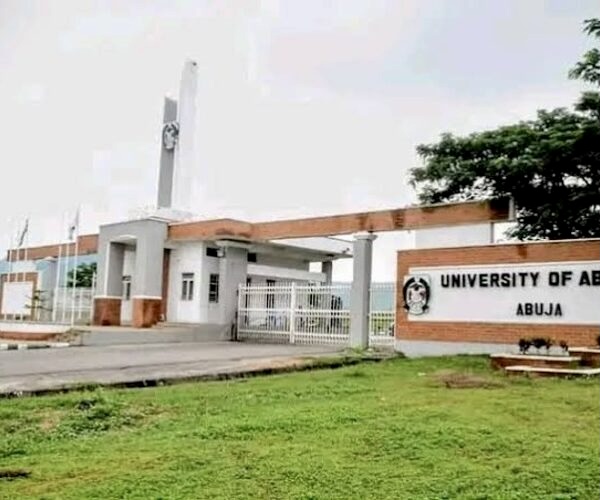By Ayo Fasuyi
The Minister of the Federal Capital Territory (FCT) Nyesom Wike has yanked off the land acquired by the University of Abuja (UniAbuja) from 11,000 hectares to 4,000 hectares over alleged land grabbing.
Wike announced this in Abuja during the commissioning of an access road to the permanent site of the Economic and Financial Crimes Commission (EFCC) Academy and other roads in Giri area by the Speaker of the House of Representatives, Tajudeen Abbas.
Initially sitting on 11,824 hectares, UniAbuja was until this development Nigeria’s third-largest University by landmass, coming after Obafemi Awolowo University (OAU) in second position with 13,000 hectares, and the University of Ilorin first with 15,000 hectares.
“This road has helped us to stop the land grabbing by the University. The University on their own, grabbed 11,000 hectares. I said that would not happen.
“No document, nothing. You see them fencing everywhere, and before you knew it, they would have gone to sell our land.
“So I have told the Director of Lands and the other relevant agencies to carve out 4,000 hectares and give to the University. The other ones would be reallocated.
“We cannot allow people. You just wake up in the morning, all you see is just fencing all over, no document, nothing. That is not the way we are supposed to work, he said.
Wike said that the Giri community is host to many institutions, like the University, the EFCC Academy, and other institutions that are supposed to be here.
The EFCC Academy, he said, would commence operations immediately following the completion of the road, which now provided easy access for equipment mobilization and structural development.
Wike also pledged to provide essential amenities such as roads, water, and electricity to attract investors and improve the living conditions in the district.
“They will start the academy immediately because now they have access roads that they can move in their equipment and develop this.
“And when this comes, you see that other people will also move in and develop their own area,” he said.
“Most of the problems we’re having here is that sometimes when you allocate land, there are no facilities, no infrastructure, and people are not encouraged.
“So, we will do everything we can to see that basic infrastructure is being provided,” he added.







